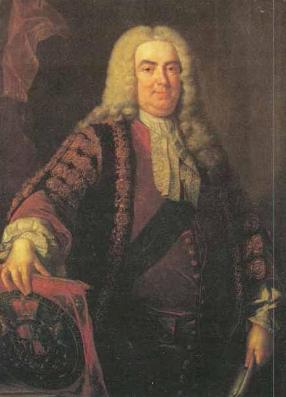Prime Path
| Time Limit: 1000MS | Memory Limit: 65536K | |
| Total Submissions: 10483 | Accepted: 5992 |
Description
 The ministers of the cabinet were quite upset by the message from the Chief of Security stating that they would all have to change the four-digit room numbers on their offices.
The ministers of the cabinet were quite upset by the message from the Chief of Security stating that they would all have to change the four-digit room numbers on their offices.
— It is a matter of security to change such things every now and then, to keep the enemy in the dark.
— But look, I have chosen my number 1033 for good reasons. I am the Prime minister, you know!
— I know, so therefore your new number 8179 is also a prime. You will just have to paste four new digits over the four old ones on your office door.
— No, it’s not that simple. Suppose that I change the first digit to an 8, then the number will read 8033 which is not a prime!
— I see, being the prime minister you cannot stand having a non-prime number on your door even for a few seconds.
— Correct! So I must invent a scheme for going from 1033 to 8179 by a path of prime numbers where only one digit is changed from one prime to the next prime.
Now, the minister of finance, who had been eavesdropping, intervened.
— No unnecessary expenditure, please! I happen to know that the price of a digit is one pound.
— Hmm, in that case I need a computer program to minimize the cost. You don't know some very cheap software gurus, do you?
— In fact, I do. You see, there is this programming contest going on... Help the prime minister to find the cheapest prime path between any two given four-digit primes! The first digit must be nonzero, of course. Here is a solution in the case above.
1033The cost of this solution is 6 pounds. Note that the digit 1 which got pasted over in step 2 can not be reused in the last step – a new 1 must be purchased.
1733
3733
3739
3779
8779
8179
Input
One line with a positive number: the number of test cases (at most 100). Then for each test case, one line with two numbers separated by a blank. Both numbers are four-digit primes (without leading zeros).
Output
One line for each case, either with a number stating the minimal cost or containing the word Impossible.
Sample Input
3 1033 8179 1373 8017 1033 1033
Sample Output
6 7 0
Source
题意为给你t组数据,然后每组给你a,b两个数,问让你从a改到b需要多少次,要求每次只能改动1个数字,且每次改成的数必须为素数。
本题运用BFS宽度(广度)优先搜索的方法。用一个queue的栈,然后每次从栈中提取出最前面的数,再尝试这个数可以改成什么样的素数,并记录改成这个素数需要多少次(即提出的那个数的改动次数+1),搜索完后删除栈中最前面的那个数。重复上述过程直到搜索到了b数。过程中用数组p[]记录改变到这个素数需要多少次,visited[]用于记录已经搜索过的素数。
代码如下。
#include<cstdio>
#include<cstring>
#include<queue>
using namespace std;
int f[10010],p[10010],visited[10010];
//f[]用于快速求素数,p[]记录改变到这个素数需要多少次,visited[]用于记录已经搜索过的素数
int BFS(int a,int b)
{ queue<int> q;
q.push(a);
p[a]=0;
visited[a]=1;
while(!q.empty())
{ int temp=q.front(); //得到qu最前方的素数
q.pop();
for(int i=0;i<=9;i++)
{ int y1=(temp/10)*10+i;
//个位的改变
if(f[y1]==0 && visited[y1]==0)//判断这个数是否是素数且是否搜索过
{ q.push(y1); //是的话将其放入qu的最后
p[y1]=p[temp]+1; //改成这个素数的需要的次数是上一个素数的次数+1
visited[y1]=1; //记录改数搜索已过
}
//十位的改变
int y2=(temp/100)*100+temp%10+i*10;
if(f[y2]==0 && visited[y2]==0)
{ q.push(y2);
p[y2]=p[temp]+1;
visited[y2]=1;
}
//百位的改变
int y3=(temp/1000)*1000+temp%100+i*100;
if(f[y3]==0 && visited[y3]==0)
{ q.push(y3);
p[y3]=p[temp]+1;
visited[y3]=1;
}
//千位的改变
if(i!=0)
{ int y4=temp%1000+i*1000;
if(f[y4]==0 && visited[y4]==0)
{ q.push(y4);
p[y4]=p[temp]+1;
visited[y4]=1;
}
}
if(visited[b]) //如果搜素到想要改成的那个数的话,就返回需要的次数
return p[b];
}
}
return 0;
}
int main()
{ int i,j,k,n,a,b;
//快速求素数
for(i=2;i<=10010;i++)
{ if(!f[i])
for(k=2;k*i<10010;k++)
f[k*i]=1;
}
scanf("%d",&n);
while(n--)
{ memset(p,0,sizeof(p));
memset(visited,0,sizeof(visited));
scanf("%d%d",&a,&b);
printf("%d\n",BFS(a,b));
}
}







 本文介绍了一个解决实际问题的算法:在一个编程竞赛背景下,帮助总理找到从一个四位素数到另一个四位素数的最经济路径,每次仅修改一位数字。通过BFS宽度优先搜索,实现最小成本的数字转换,适用于需要高效算法解决实际应用问题的情境。
本文介绍了一个解决实际问题的算法:在一个编程竞赛背景下,帮助总理找到从一个四位素数到另一个四位素数的最经济路径,每次仅修改一位数字。通过BFS宽度优先搜索,实现最小成本的数字转换,适用于需要高效算法解决实际应用问题的情境。
















 446
446

 被折叠的 条评论
为什么被折叠?
被折叠的 条评论
为什么被折叠?








